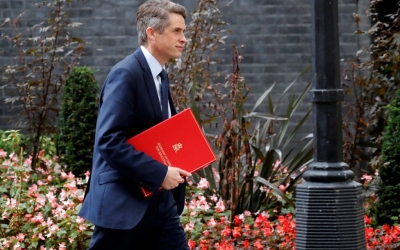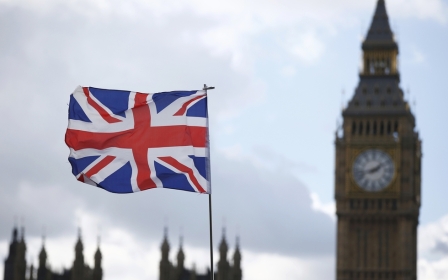Twitter: Pressure groups call on Musk to adopt IHRA antisemitism definition

A joint letter by a group of 180 pro-Israel NGOs and civil rights associations has called on Elon Musk, Twitter's new owner, to adopt the controversial International Holocaust Remembrance Alliance (IHRA) definition of antisemitism.
"The world needs an online platform where everyone can participate," the letter to the billionaire read.
"Unfortunately, this is not the case, as Jewish users are subject to unrelenting harassment on Twitter.
"In order to fight antisemitism properly, it must be defined."
New MEE newsletter: Jerusalem Dispatch
Sign up to get the latest insights and analysis on Israel-Palestine, alongside Turkey Unpacked and other MEE newsletters
The signatories, which include groups from the UK, US, and France, among others, urged Musk to update Twitter's anti-hate policies calling for the unequivocal adoption of the IHRA definition urging to "act against Jew-hatred".
The definition has been championed by various Jewish and pro-Israeli groups who want it to become a benchmark used by many governments, NGOs, and public institutions to identify anti-Jewish acts.
The IHRA's working definition of antisemitism reads as follows: "Antisemitism is a certain perception of Jews, which may be expressed as hatred toward Jews. Rhetorical and physical manifestations of antisemitism are directed toward Jewish or non-Jewish individuals and/or their property, toward Jewish community institutions and religious facilities."
The IHRA lists examples that are deemed offensive, including making claims that Jews control the media and the economy, denying the Holocaust, and accusing Jews of being more loyal to Israel than their own countries.
Seven of the 11 examples make references to Israel. They include claiming that the existence of the state of Israel is a "racist endeavor" and "applying double standard [to Israel] by requiring of it a behavior not expected or demanded of any other democratic nation".
According to the IHRA its definition has been adopted by almost 40 governments around the world.
"Adopting the IHRA Working Definition would provide Twitter with an effective and neutral tool to protect Jewish users from antisemitic content along with the hate and violence it can inspire," said the letter addressed to Twitter.
Criticism of Israel
As an example of anti-Semitic tweets that could be impacted by the adoption of the IHRA definition, the authors of the letter cited the progressive Jewish media outlet Mondoweiss, which has called Zionism a "racist" ideology.
The letter also cites the Torah Jews, a Jewish organisation that promotes the idea that "Zionism is not Judaism", as breaching the IHRA definition of antisemitism.
Several other activists and organisations that were critical of Israeli policies against Palestinians were also referenced in the letter.
Critics fear that the IHRA definition conflates antisemitism with anti-Zionism or criticism of historic and current policies that led to the creation of the state of Israel in 1948, the expulsion of hundreds of thousands of Palestinians from their homes, the continuing human rights abuses against Palestinians, and the Israeli occupation of Palestinians lands.
One critic of the letter warned that the signatories, far from seeking to fight antisemitism, were looking to silence critics of Israel.
"Supporters of the #IHRA definition of anti-Semitism insist that it is not about silencing criticism of Israel. But in [adopting the] IHRA Coalition's list of 50 "examples" of "antisemitic tweets" that violate IHRA, a significant number of them are just… criticisms of Israel," said human rights activist Michael Bueckert.
Twitter already has rules that regulate hate speech, including antisemitism. However, by adopting the new IHRA definition, critics fear that the debate on the Israeli-Palestinian conflict could be stifled.
In 2020, a year-long study into the IHRA definition by University College London also concluded that it created a "chilling effect" on campus.
It said the definition made students and staff "anxious" to discuss issues concerning Israel and Palestine. In February, academics at UCL called on the university to stop using the definition and replace it with something "fit for purpose."
Middle East Eye delivers independent and unrivalled coverage and analysis of the Middle East, North Africa and beyond. To learn more about republishing this content and the associated fees, please fill out this form. More about MEE can be found here.





